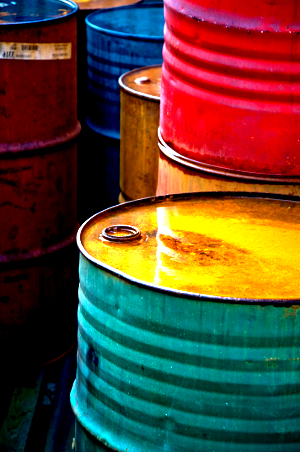OPEC+ cuts production
 The Saudi oil cartel is making a deep cut in production to push up prices.
The Saudi oil cartel is making a deep cut in production to push up prices.
Saudi Arabia has revealed plans to significantly reduce its oil production in July, which will come on top of ongoing supply limitations agreed upon by the OPEC+ alliance until 2024.
According to Saudi Arabia's energy ministry, the country's output will decrease from around 10 million barrels per day (bpd) in May to 9 million bpd in July.
This reduction marks the largest in years and aims to stabilise the market.
Saudi Energy Minister Prince Abdulaziz referred to it as a “Saudi lollipop” during a news conference, emphasising the state’s intention to maintain suspense and prevent predictable market behaviour.
OPEC+ comprises the Organization of the Petroleum Exporting Countries and its allies, led by Russia.
Together, they account for approximately 40 per cent of global crude oil production, granting their policy decisions significant influence over oil prices.
While a surprise supply cut in April briefly lifted international benchmark Brent crude prices by US$9, concerns regarding the global economy's weakness and its impact on oil demand have since caused prices to retreat. Last week, Brent closed trading at US$76.
Saudi Arabia is the sole OPEC+ member with ample spare capacity and storage, allowing for easy adjustments to its output. This flexibility enabled the country to swiftly respond to the oversupply that weakened the market at the beginning of the COVID-19 pandemic in 2020.
In an agreement reached after a seven-hour discussion, OPEC+ decided to extend the existing cuts of 3.66 million bpd until the end of 2024.
These cuts, amounting to 3.6 per cent of global demand, include 2 million bpd agreed upon last year and voluntary cuts of 1.66 million bpd implemented in April.
Accusations from Western nations claiming that OPEC manipulates oil prices and undermines the global economy, particularly through high energy costs, have emerged since Russia's invasion of Ukraine in February 2022.
In response, OPEC insiders have argued that the West's excessive money-printing over the past decade has fueled inflation, forcing oil-producing nations to protect the value of their main export.
Market analysts view the OPEC+ decision as a clear indication of the group's determination to support prices and counteract speculative activities.
Amrita Sen, co-founder of the Energy Aspects think-tank, says; “It is a clear signal to the market that OPEC+ is willing to put and defend a price floor”.
The extension of output cuts, combined with a reduction of production targets by an additional 1.4 million bpd from January 2024, sends a strong message to speculators.
However, adjustments made to align targets with actual production levels mean that some reductions may not be fully realised.
Notably, the United Arab Emirates has been permitted to raise its output targets to 3.22 million bpd, an increase of approximately 0.2 million bpd.








 Print
Print